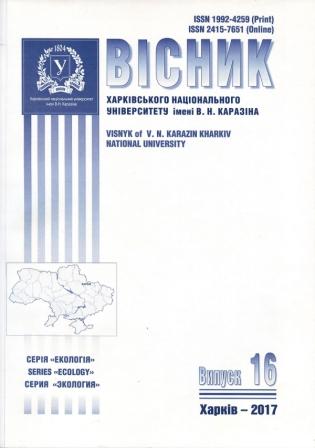Environmental Project in Native Locality as Method in Ecological Education
Abstract
Purpose: To connect the components of the environment, society, economy and education in view of sustainable development, with formation and development of a sense of local belonging, through environmental project, as individual work for students, including studies of environmental problems in their home villages. Methods: environmental project, methods of oral communication, written communication methods, methods of direct systematic exploration of reality, methods of working in the field, laboratory study methods, analytical method, historical method, systematic method of environment study, etc. Results: One of the recent methods used in environmental education of Pedagogical State University "Ion Creanga"’ students, faculty - History and Geography, university course -"Environmental Protection" is the environmental project - a research carried out by students and coordinated by teachers, that studying an environmental issue or problem. In this context, the main effort is focused on local communities, which is the highest form of organization in which students and residents, by developing local sense of belonging, "I live here", can be more involved in conservation and environmental protection. Also, through environmental project, it is proposed to integrate environmental knowledge from various university courses, previously studied within the Geography specialties of the University.
Downloads
References
Codul Educaţiei al Republicii Moldova. COD Nr. 152 din 17.07.2014. http://lex.justice.md/md/355156/
Donica A. (2013). Ecological aspects of education in the recognition of landscape/ environmental values. International Scientific Conference "Modern Problems of Geography” Dedicated to the 80th Anniversary of the foundation of the Institute of Geography Ivane Javakhishvili Tbilisi State University, Vakhushti Bagrationi Institute of Geography, Nr.5(84). P.280-285.
Education for Sustainable Development in Biosphere Reserves and other Designated Areas – A Resource Book for Educators in South-Eastern Europe and the Mediterranean (2013). United Nations Cultural Organization. Venice Office. Man and the Biosphere Programme. 258p.
Educație ecologică și de protecție a mediului. Ghid metodologic pentru cadrele didactice și învățământ gimnazial (2007). Coord. Roșu E. Ministerul Educației, Cercetării și Tineretului. Chisinau. 129 p.
Isac A., Cantaragiu Iu., (2013). Promovarea educației ecologice și educației pentru dezvoltarea durabilă în Republica Moldova (în școli, gimnazii și licee). Raport de evaluare. Centrul național de Mediu. Chișinău. 98p.
Planul - cadru pentru învăţământul primar, gimnazial şi liceal pe anul de studii 2014-2015 (2014). Ministerul Educaţiei al Republicii Moldova. Chişinău. 56p.
Proiectul Legii Protecția mediului http://www.particip.gov.md/proiectview.php?l=ro&idd=1618
Proiectul Strategiei “Educaţia 2020”: http://particip.gov.md/public/documente/137/ro_427_Proiectul-Strategiei-Sectoriale-de-Dezvoltare-Educatia-2020.pdf
Natura - dascăl pentru dascăli. Metode educative pentru promovarea rețelei Natura 2000 (2012). Asociatia Grupul Milvus. Târgu Mureș. 159 p.
Strategia de mediu pentru anii 2014-2023 și a Planului de Acțiuni pentru implementarea acesteia (2014). Ministerul Mediului al Republicii Moldova, Chișinău. 90 p.
Authors who publish with this journal agree to the following terms:
- Authors retain copyright and grant the journal right of first publication of this work under the terms of a license Creative Commons Attribution License 4.0 International (CC BY 4.0).
- Authors are able to enter into separate, additional contractual arrangements for the non-exclusive distribution of the journal's published version of the work (e.g., post it to an institutional repository or publish it in a book), with an acknowledgement of its initial publication in this journal.
- Authors are permitted and encouraged to post their work online (e.g., in institutional repositories or on their website) prior to and during the submission process, as it can lead to productive exchanges, as well as earlier and greater citation of published work.





